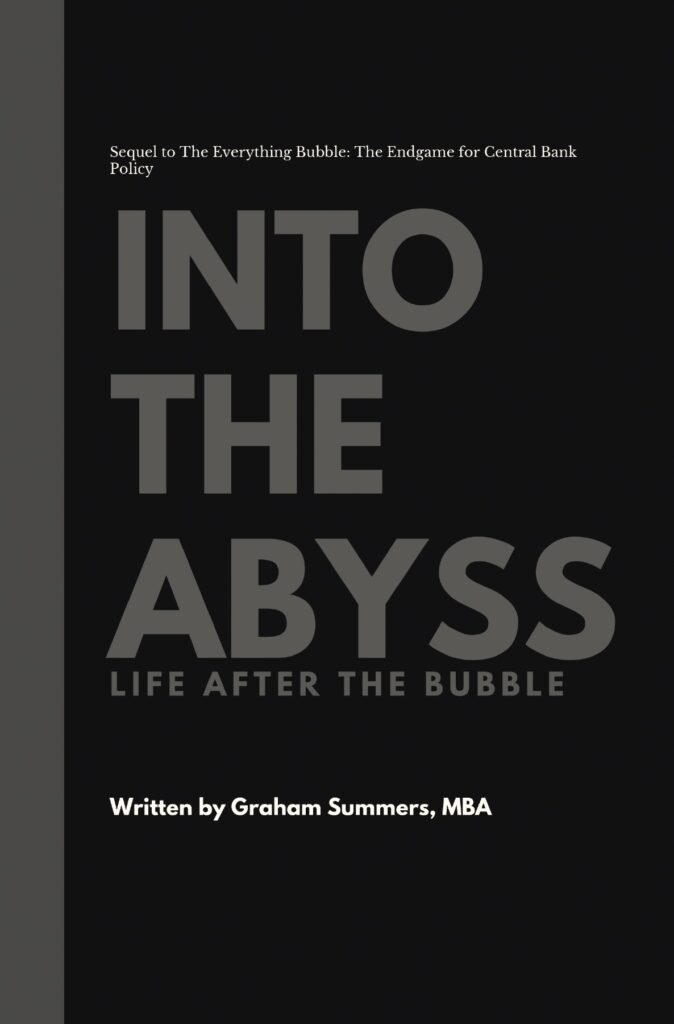The coming years will be marked by a seismic change in the economic landscape in the US. Firstly and most importantly, we are going to see economic growth slow down dramatically. Jeremy Grantham, an asset manager I respect, believes we’ll see global growth at 2% over the next seven years. Personally I believe it could be even lower than that.
The reasons for this slow down are myriad but the most important are:
1) Age demographics: a growing percentage of the population will be retiring while fewer younger people are entering the workforce.
2) Excessive debt overhang.
Regarding #1, Europe is the most glaring situation. According to Eurostat, between 2004 and 2050, the number of people of non-working age relative to those of working age will increase dramatically. In the EU in 2004 there were approximately four people of working age (19-64) for every person of non-working age (65 and older). By 2050, this number will have dropped to only two people of working age for every person of non-working age.
Over the same time period, Europe will also see a tripling in people considered to be “elderly” (80 or older) from 18 million to 50 million.
These numbers alone go a long ways towards explaining why Europe is facing a budgetary Crisis of epic proportions. All of these retirees will be expecting various Government/ private sector outlays whether they are pensions, healthcare, or various other social services.
These issues are, for the most part, left out of most current analysis of Europe’s debt crisis. Indeed, while the vast majority of commentators are well aware of Europe’s official Debt to GDP ratios, when we include unfunded liabilities such as the Government outlays or social programs I detailed above, it is clear that the situation in Europe is far, far worse than is commonly known.
Jagadeesh Gokhale of the Cato Institute presents the situation with an interesting data point, “The average EU country would need to have more than four times (434 percent) its current annual gross domestic product (GDP) in the bank today, earning interest at the government’s borrowing rate, in order to fund current policies indefinitely.”
The situation is not quite as profound in the US, though we will be seeing a dramatic increase in the age dependency ratio (the number of people of retired age relative to those of working age) between 2010 and 2030 as the Baby Boomers retire: in 2010 there were 22 people aged 65 and older for every 100 people of working age. By 2030, this number will have grown to 37 people aged 65 and older for every 100 people of working age.
However, while the ratios are not as poor in the US as in Europe, the unfunded liabilities the US faces are truly astronomical. USAToday puts the number at $61.6 trillion in unfunded obligations, an amount equal to roughly $528,000 per US household.
However, Japan makes both the EU and the US look tame. In 2009, Japan already had 35 people aged 65 or older for every 100 people of working age. However, by 2050, this number will have swelled to an incredible 73 people aged 65 or older out of every 100 people of working age. This among other things sets Japan as a ticking time bomb, which we will assess in another report.
The EU, Japan, and the US comprise $36 trillion of the global $64 trillion economy (roughly 57%). So this debt overhang will have a profound impact on global growth particularly in the developed world going forward.
This debt overhang will result in several developments from a political perspective. For one thing, the social contract between Governments and retirees will have to be re-negotiated, as the money promised by the former to the latter simply isn’t there.
Governments will try to deal with this in one of two ways: by raising taxes on high- income earners/ any other potential avenue for raising revenues and by reneging on the promises made to retirees.
The impact these moves will have on the political landscape will be profound. Among other things we will be seeing more protests both at the ballot box and in the streets (Greece’s riots are a taste of what’s to come for much of Europe and eventually the US).
To picture how a cutback in social programs will impact the US populace, consider that in 2011, 48% of Americans lived in a household in which at least one member received some kind of Government benefit. Over 45 million Americans currently receive food stamps. And 43% of Americans aged 65-74 are Medicare beneficiaries.
Consider the impact that even a 10% reduction in these various programs would have on the US populace.
With that in mind, people will have to make do with less. This will have a profound social impact, as it will force many more traditional values to come to the forefront of American culture again. Among other things I believe:
1) Divorce rates will drop as people cannot afford to divorce anymore.
2) Individualism will give way to more community focused lifestyles: whether they be food co-ops, neighborhood watches, or simply having to live with relatives, the nuclear family and local community will become increasingly important as an emotional and economic support.
3) Savings will increase and entertainment expenditures will become more frugal (Netflix vs. going to the movies, camping vs. more expensive vacations, etc.)
More importantly, the political process will change dramatically in the developed world, as politicians will no longer be able to promise social benefits and other handouts in order to incur votes. The impact of this will be very dramatic both in terms of campaigning and lobbying efforts in DC.
From an economic growth standpoint, these age demographics and their accompanying debt overhangs will act as a drag in the developed world. Regrettably, this will likely lead to increase geopolitical tensions (much as we saw in the Arab spring) as times of economic contraction usually result in increased conflict both in terms of trade (the US and China) and actual warfare (the Middle East).
However, the fact remains that we will witness a Global Debt Implosion. It has already begun in Europe and will be coming to Japan and eventually the US.
On that note, if you’re looking for actionable investment strategies on how to play these themes in the markets I suggest checking out my Private Wealth Advisory newsletter.
Private Wealth Advisory is my bi-weekly investment advisory published to my private clients. In it I outline what’s going on “behind the scenes” in the markets as well as which investments are aimed to perform best in the future.
My research has been featured in RollingStone, The New York Post, CNN Money, the Glenn Beck Show, and more. And my clients include analysts and strategists at many of the largest financial firms in the world.
To learn more about Private Wealth Advisory… and how it can help you navigate the markets successfully…
Graham Summers
Chief Market Strategist
Phoenix Capital Research




